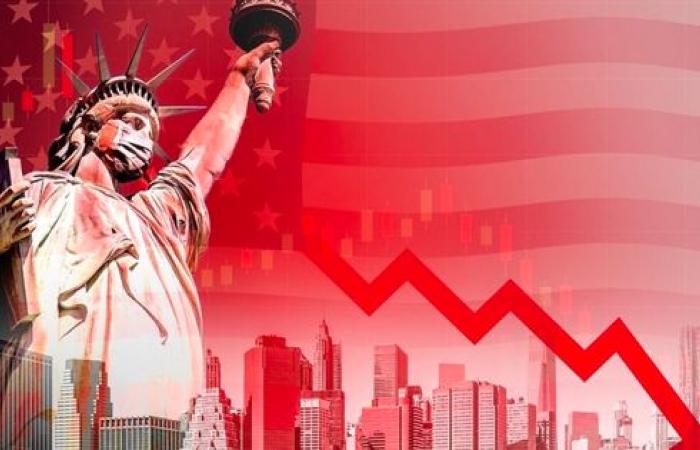
The agreement, expected to be made by President Joe Biden and Speaker of the House Kevn McCarthy over the weekend, if approved by Congress in the coming days, the United States will avoid the worst-case scenario of debt default. However, the deal could also increase the risk of a recession for the world’s largest economy.
In recent quarters, federal spending has partly supported US growth in the face of headwinds. However, the new agreement may cause this momentum to “lose breath”. Two weeks before the consensus was reached, economists calculated the probability of a recession next year at 65%.
For Fed policymakers, the new spending cap will be another factor to consider as they update their growth and interest rate forecasts (released June 14). Traders in the futures market over the weekend forecast that the central bank would not raise interest rates at its mid-June meeting and another 0.25% increase in July.
The spending cap provisions are expected to come into effect from the fiscal year beginning October 1. It is expected that the impact of this agreement will appear before that time, such as stopping payment of Covid benefits or phasing out the regulation that allows student debt to be paid late. These factors are said to have no effect on GDP.
However, as spending caps are expected to stay at 2023 levels, the restrictions imposed by the agreement will come into effect at a time when the US economy may be in recession. Economists surveyed by Bloomberg expect GDP to shrink by about 0.5% in both the third and fourth quarters.
“The fiscal multiplier is usually higher during a recession,” said Michael Feroli, chief US economist at JPMorgan. Therefore, if the US is in a recession, the reduction in fiscal spending could have a big impact on GDP and the labor market.”
However, Feroli still thinks that the US will avoid a recession scenario.
When the economy decelerates, adjustments to fiscal policy can be applied in parallel with monetary policy to control inflation.
“This is an important step forward,” said Jack Ablin, CIO of Cresset Capital Management. It’s been more than a decade since monetary and financial policymakers were on the same page. Presumably, controlling fiscal spending will be another factor putting pressure on inflation.”
Although the Fed has raised interest rates by about 5% since March last year, the US economy so far does not seem to have cooled down. The unemployment rate is at its lowest level in more than half a century, at 3.4% thanks to high demand for workers. Meanwhile, consumers still have their savings from the pandemic to shop.
Accordingly, Fed officials will have to consider many factors, because in addition to the impact of the debt ceiling agreement on the economic outlook, their decision also affects the money market as well as liquidity.
The U.S. Treasury Department has used up all of its cash to make necessary payments since hitting a debt ceiling of $31.4 trillion in January. When that level is suspended under upcoming legislation, the Treasury Department will issue more treasury bills to rebuild the “reservoir”.
As a series of Treasury bills “flow” into the market, the financial system will be “drained” of liquidity, although the impact has not been fully assessed. Treasury officials can also arrange issuances to minimize disruption.
The Fed was also forced to remove liquidity from the market, cutting the value of its bond portfolio by as much as $95 billion a month. This is a move that economists will be watching closely in the coming weeks and months.
In the long run, the fiscal spending cap that negotiators have outlined will almost certainly have little effect on the federal debt. The IMF said last week that the US would need to reduce its budget to about 5% of GDP to “bring down public debt dramatically by the end of the decade”.
Refer to Bloomberg
Tags: dodges default scenario deeply recession risk Fed headache adjusting interest rates
-
